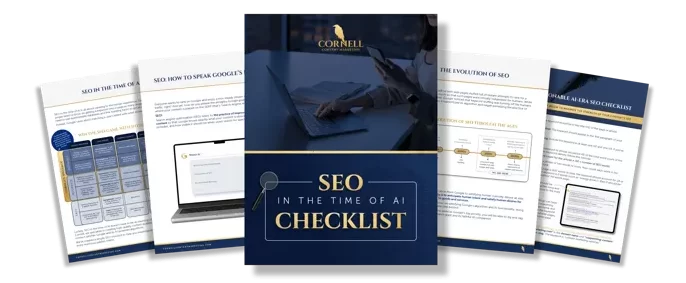SEO Expert Tips to Kickstart Your Ranking Strategy in the New Year
When crafting an SEO expert strategy, far too many people focus on the data around keywords and neglect the human side of things.
But here’s the thing: It’s the humans who have the power to click the “Buy Now” button – not Google’s bots.
For example, we used to write for a company that worked with a separate SEO agency. That SEO agency would ask us to write 2,000 word articles on dry keywords like “what is bamboo toilet paper” or “the history of toilet paper.”
The problem is that nobody wants to read 2,000 words on the history of toilet paper. Consumers want to google their question, read the four lines that show up in Google’s search preview, and be done. Search volume means nothing if it’s not matching user intent — and the SEO agency wasn’t thinking about that.
That’s why I approach SEO first from the perspective of the human behind the search. Let’s build a relationship with that consumer first, and then let’s satisfy Google’s algorithm.
With that approach in mind, let’s look at five SEO expert tips for designing a ranking strategy that will get you long-term clicks and sales.
Plan for the Long-Term
The first step to a killer SEO strategy is to begin with longevity in mind. At Cornell, when we design your strategy in what we call an SEO Audit, Report & Plan (ARP), we don’t just look at the next 3 to 6 months.
Instead, we’ll ask you about your goals and plans for the future:
- How are you expanding your product line?
- What new features will you add in the next year? Two years? Three?
- Where do you want to be holistically in the next five years?
We want to design a strategy that will last you 2 to 4 years, not months. (And yes, that kind of longevity is typical for our clients!) To that end, we choose high-value keywords that will continue to be relevant in your brand in the future.
Content marketing is one of those things that you pay for once and use forever. This means that the pieces we write today can get you sales at many different points in your company’s future. In fact, some of our clients still get leads and traffic from content that we wrote for them four or five years ago.
So when you’re planning your SEO strategy, think of how long that content is going to stick around. It’s not like an ad that will live online for a month or two and then stop existing once you stop pouring money into it; it’s an investment into your brand’s voice that will work for you indefinitely.
Factor in Intent
When a person types a keyword into Google, what kind of information is that person trying to find?
Let’s go back to the toilet paper example. If someone types, “Who invented toilet paper?” into Google, that person’s intent is literally just to find the name of the inventor, maybe where the inventor was from, and maybe the year that toilet paper was invented. That’s it.
On the other hand, if someone types in, “eco-friendly household goods,” then that person’s intent is most likely one of two things:
- To learn about different eco-friendly products available for home use
- To buy eco friendly products for home use
Generally, if a user is researching a keyword, then that user has a high likelihood of eventually wanting to buy that product: that’s a keyword with a high intent to buy. When you select your keywords, focus on intent to buy and not just search volume.
Our end goal is to increase conversions, so a keyword with moderate or even low search volume but a high intent to buy is much more valuable than a keyword with a high search volume but low intent to buy.
Consider the Newness of Terms
Keyword newness is a factor that differentiates an SEO expert from an SEO novice.
When selecting a keyword for your SEO expert strategy, always factor in its newness and potential for growth over time.
Newness is important to keep in mind because it can skew how you interpret keyword search volumes, and because it’s part of planning for longevity.
For example, one of our clients is a cannabis consulting firm that helps cannabis business owners to establish and grow their businesses. We created content for this client on cannabis lounges, which are a recent development in the cannabis industry.
Now, the search volume for “cannabis lounges” didn’t show up as being particularly high, but we still decided to create content using that keyword. Why?
Keyword tools show you the average search volume per month based on the total search volume for the past year, but a relatively new term may not have had any searches 6–12 months ago. Thus, the search volume for that term might be sky-high this month, but the average will be pulled down by the previous months.
To combat this skewed perspective, make sure that you’re using a keyword tool that will both show you the per-month search volume over the last 12–36 months and break that search volume down by month so you can see the trend. My favorite is KWFinder, but there are several other good ones out there.
If a keyword is gradually trending up, then that’s a great keyword to use in your SEO expert strategy. It’s likely that few people are writing about it yet — which makes it a great hole for your content to fill. And because your content lives forever, it will just become more valuable as the keyword continues to trend upward.
Don’t Devalue Tangential Keywords
Oftentimes, when companies are choosing keywords for their SEO strategy, they only look at keywords that relate directly to their business, products, and offers. They look at keywords as if they’re only choosing them for specific website pages — Home, About, Products, etc.
In your SEO expert strategy, don’t make that mistake.
What if someone doesn’t know that your particular product or offer exists? What are they going to be typing into Google? It can’t be your core keyword, so what will it be?
They’ll be typing in what I call “tangential keywords.” These are keywords that are related to the solution you offer; they’re what people search for when they don’t know about your solution to their problem.
In our toilet paper example, phrases like, “eco-friendly toilet paper” or “ways to reduce your carbon footprint” are perfect tangential keywords. The latter especially has nothing specifically to do with bamboo toilet paper, but someone searching for that would likely be interested in bamboo toilet paper.
Use your business- or product-specific keywords — like “toilet paper delivery” or “toilet paper subscription” — for your core website pages. Then, use tangential keywords in your content (blog posts, social media posts, video, podcasts, emails, etc.) to help people discover your product based on their already existing interests.
A True SEO Expert Prioritizes Quality
Are you creating quality content that provides value to actual humans, or are you listening to an outdated SEO expert who told you to stuff in keywords just to appease the algorithm?
Ultimately, it’s a human that will click “buy now” (or exit the page). Google only helps people find your content in the first place; it’s up to you to show them that you have what they’re looking for.
Don’t sacrifice quality just to check off all the boxes. If adding your keyword makes the wording awkward, people will notice. They’ll see right through you, and they won’t be happy. Prioritize quality content first, then craft an SEO expert strategy that won’t compromise your content’s integrity.
The good news is that you don’t have to be an SEO expert to get started on that killer strategy. Download our free SEO Deployment Checklist to maximize the organic reach of every piece of content you create.



